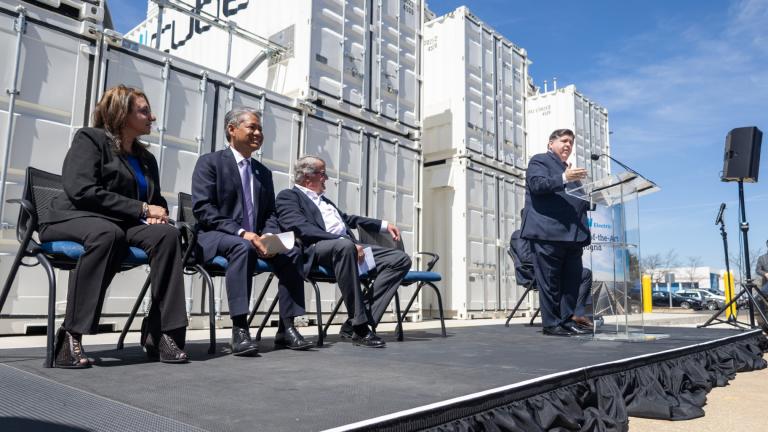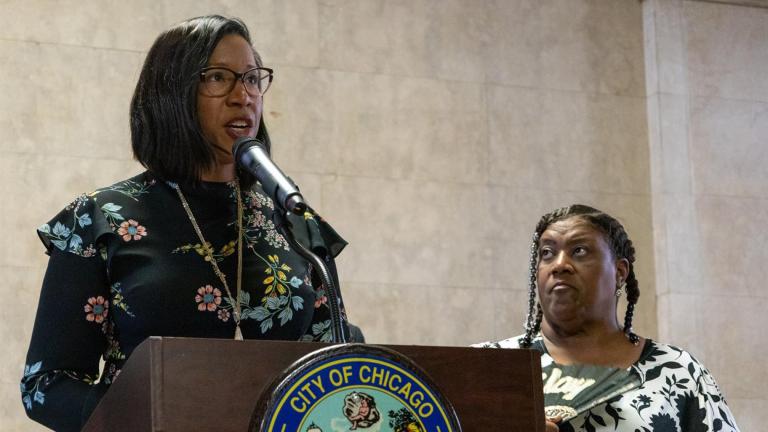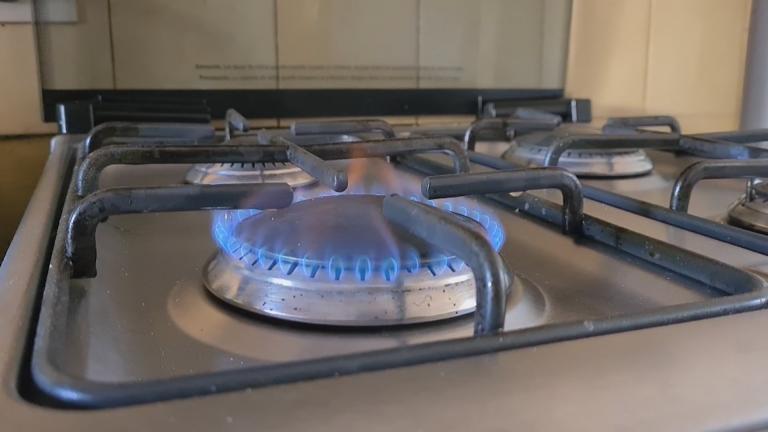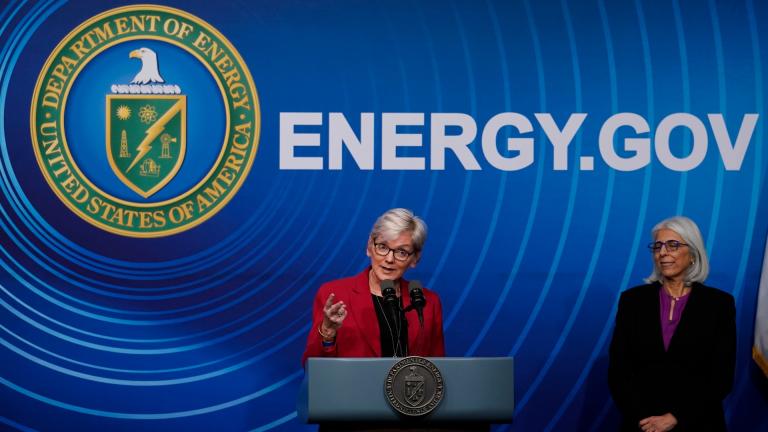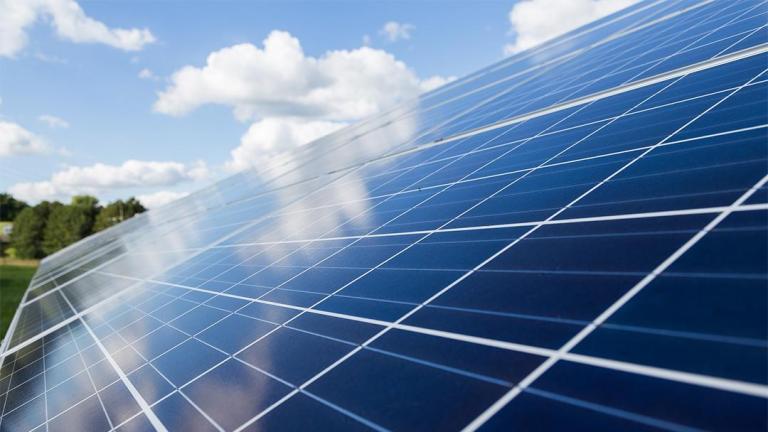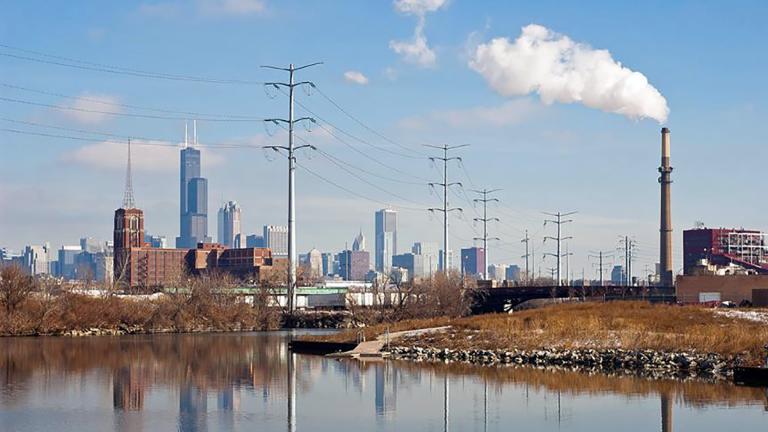Illinois utilities companies want to charge more for delivering natural gas and electricity to consumers across the state.
“Basically every major gas and electric utility in Illinois has filed for a rate increase at once,” Illinois Public Interest Research Group (PIRG) director Abe Scarr said.
What’s behind the increases depends on whom you ask. The companies have their reasons, while consumer advocates like Scarr see profit motives.
Scarr said the timing has to do with changing state regulations, including the expiration of laws that largely removed authority from the Illinois Commerce Commission (ICC). Now, though, the ICC once again has more control over how much utilities can charge.
Because they’re virtual utilities monopolies, companies like ComEd and Peoples Gas can’t set their own prices; the companies have to make their case to state regulators. Then the ICC decides whether the spending plans are appropriate.
The increases do not include the actual price of electricity or gas, the costs of which are passed on directly to consumers at-cost.
Rather, utilities charge and make money by delivering energy. The rates they’re seeking to hike are for distribution, including infrastructure like pipes and transmission lines, and the profit they can tack on to those costs.
In each case affecting those who live in and around Chicago, the price hikes amount to double-digit increases.
Nicor, a natural gas company serving most of northern Illinois outside Chicago, is asking for a $321 million increase — or about $9 a month for the average customer, according to the company.
“I would note that’s on top of three rate hikes in just four years, recently increasing rates by 77%,” Scarr said. “That actually would be the biggest rate increase in history. It was when they made it. But it was one-upped by Peoples Gas just days later.”
Nicor said in a statement that it “realizes the impact any rate increase can have on customers and does not make this request lightly; however, this rate increase is necessary to run our business due to inflation and rising global impacts that continue to affect our operating and maintenance costs.”
Peoples Gas is requesting a $402 rate increase, which works out for the consumer to roughly a $12 per month increase.
Peoples Gas is focusing on reliability, saying “the filing ensures Chicagoans will continue to have the safe, reliable, environmentally sustainable energy they depend on — especially when temperatures drop to zero and below, as they did during the recent holiday cold snap.”
The company is also downplaying the effect that its request, if granted, will have on customers, by saying that “the filing is not expected to increase the typical customer’s bill” because “with natural gas prices forecast to decline this year and next year, customer bills are expected to stay largely flat as new rates take effect in 2024.”
In other words, Peoples Gas argues that because the price of natural gas is expected to decline, the increase the company seeks for delivering natural gas means the total cost could work out to a wash.
But Scarr said consumers should beware.
“This past year we saw significant increases in the cost both of electricity and of gas,” Scarr said. “And so consumers have felt that in the bills they’re paying. Those may go down in future years. They go up and down. These are global commodities, and there’s a lot that influences their price. What we do know with these proposals is that the delivery side of your bill, if the utilities get their way, is going to go up significantly. And so when the price of gas spikes again, as it inevitably will, or the price of electricity spikes — as it may — we’re going to be hit harder.”
Last but not least, ComEd has filed a nearly $1.5 billion hike, spread over four years. That would amount to $4.25 more per month, annually, so come 2027, consumers would be looking at a $17 per month increase for the delivery of electricity.
The company is also downplaying the rate increase, saying “the average residential bill would be less than even the average 2021 residential utility bill in more than half of U.S. states.”
“These proposed investments are necessary to deliver the resilient 24/7 power our customers depend on, prepare the grid for fleets of electric vehicles and electrification, integrate more clean energy and battery storage, and equitably advance a decarbonized energy future,” ComEd CEO Gil Quiniones said Tuesday in a statement.
But the Citizens Utility Board (CUB) is skeptical.
“Making strategically smart, consumer-friendly grid improvements can help save customers money in the long run, but that shouldn’t mean ComEd gets an excessive profit rate for shareholders,” CUB director David Kolata said.
He promised that CUB will do a thorough review, but that it was “immediately clear that the utility giant wants an excessive profit rate for shareholders.”
CUB and Illinois PIRG are among those pledging to challenge what they deem to be overreaches.
In March, some of ComEd’s former top honchos are set to go on trial for their role in a bribery scheme connected to former Illinois House Speaker Michael Madigan. Madigan, former ComED CEO Anne Pramaggiore and ex-lobbyists John Hooker, Mike McClain and Jay Dougherty have all pleaded not guilty.
But the corporation itself admitted in July 2020 to the scheme.
Scarr said included in ComEd’s ask is a profit return of more than 10%.
He called it a “headscratcher” that ComEd is in a position to raise rates higher than before, and in so doing make a bigger profit than before, including under the formula rate law that diminished ICC oversight and that is at the heart of the upcoming trials.
“It’s crazy to me that ComEd is positioned to do so well given their behavior over the last decade,” Scarr said.
He said ComEd is poised to “make out like bandits.”
According to recently released court documents, Madigan used that very phrase to describe how well his associates were doing after he had allegedly arranged to hook them up with lucrative jobs and contracts at ComEd.
Scarr said pipes and the electric grid do need to be maintained, but the question is: Are customers getting enough benefit to justify the cost?
The answer, for him, is no.
He said ComEd doesn’t need to rush to overhaul the grid right away; it’s not like everyone will be driving an electric car within the next few years.
“We absolutely support the need to invest in clean energy and transform the grid for clean energy, but that doesn’t mean that ComEd gets to spend whatever it wants as fast as they want and charge customers for it and profit off of it,” Scarr said.
As for Peoples Gas, he said its pipe replacement program has been out of control and has not addressed safety risks.
“Peoples Gas does have a problem with old, leaky pipes in its system, and it does need to address that,” Scarr said. “Unfortunately, in our view, the pipe replacement program is not doing that. And they’re wasting money on things that are not addressing the safety risk. Especially as we consider moving off the gas system in the next 20, 30, 40 years. If we’re making 80-year investments right now on a system we’re not going to be using in 40 years, we’re leaving a lot of money on the table.”
Rate cases take about 11 months, so it will be the end of 2023 before the ICC will make a final call on the rate increases.
Note: This story was updated on Jan. 19 to correct the monthly increase Nicor customers will see if rates increase. It is $9 a month for the average customer.
Follow Amanda Vinicky on Twitter: @AmandaVinicky

